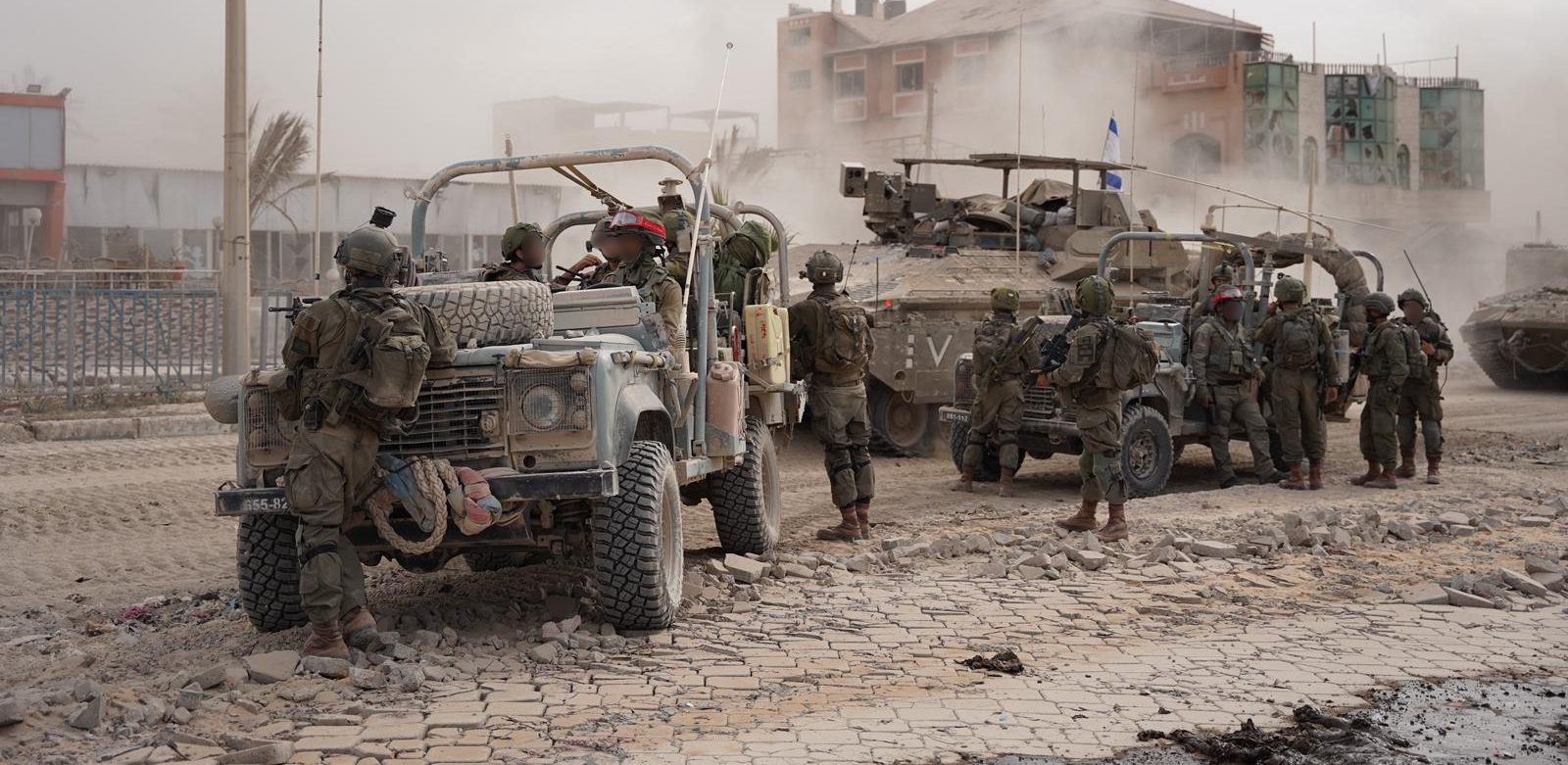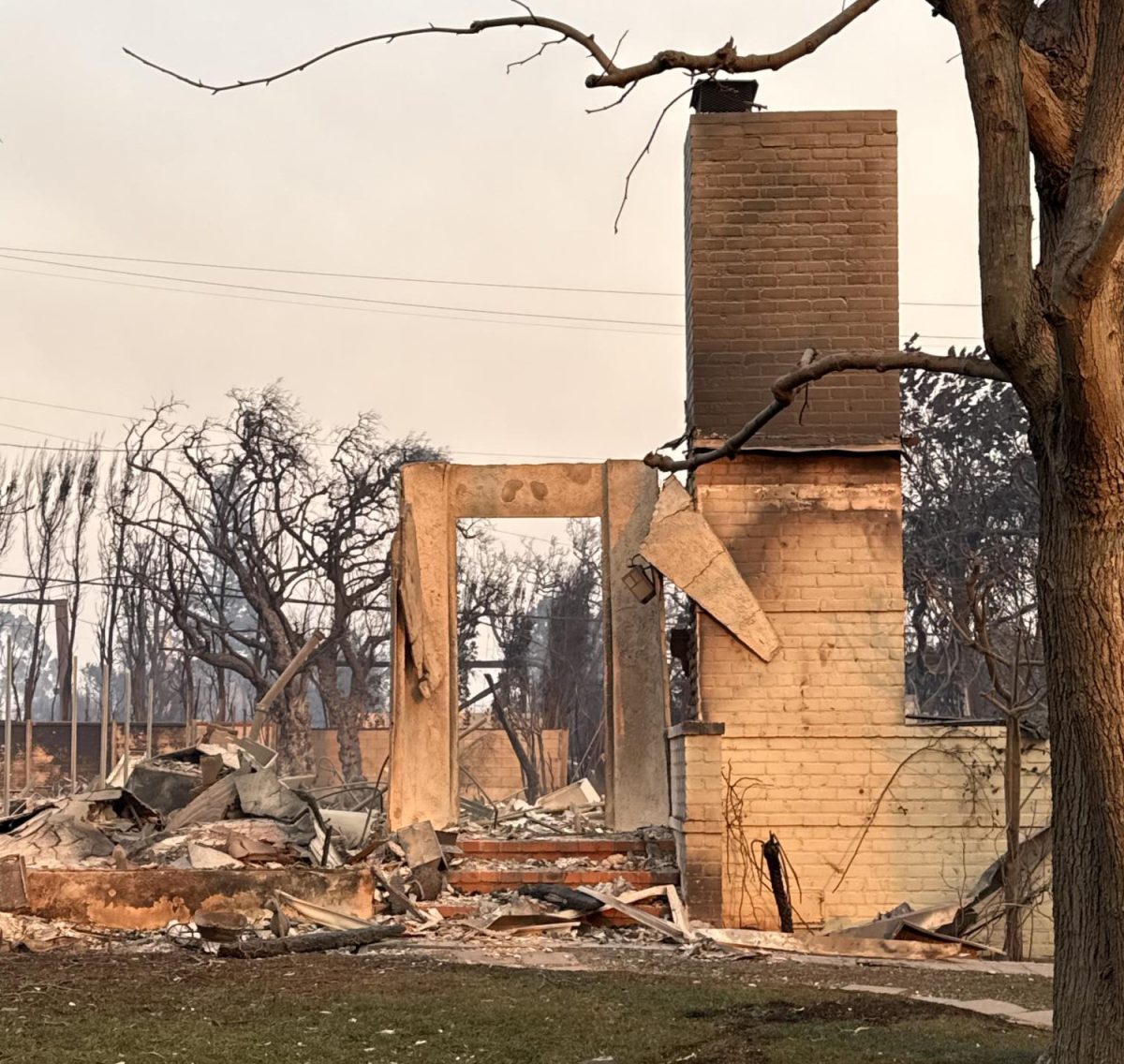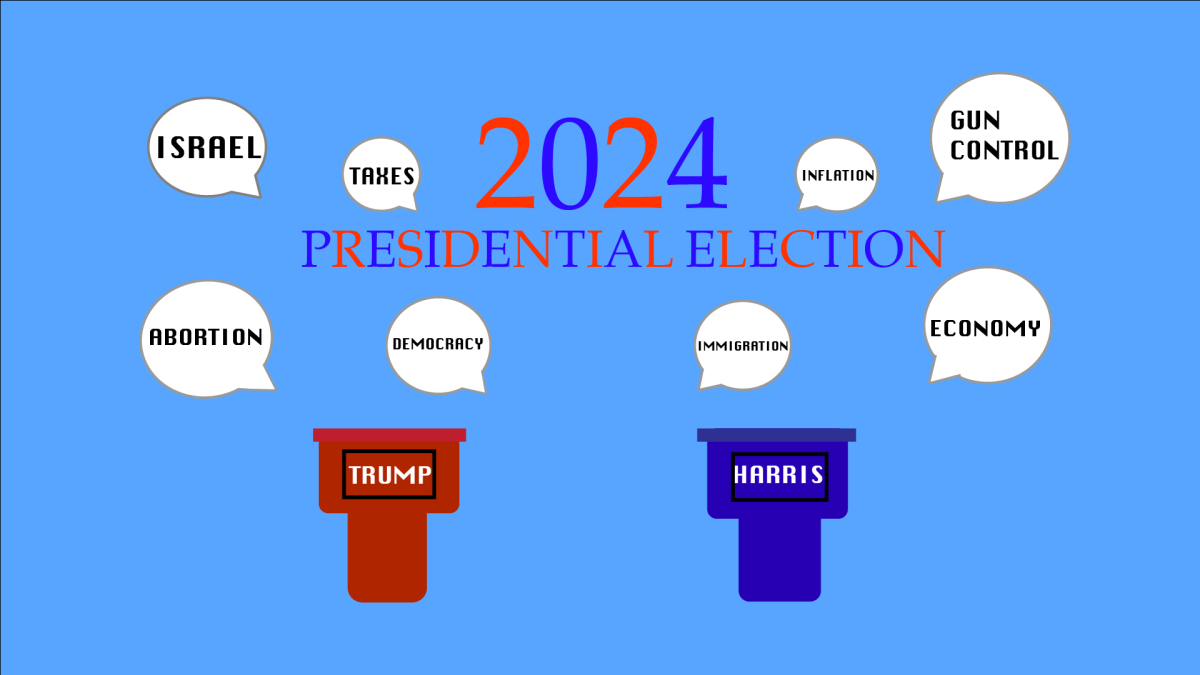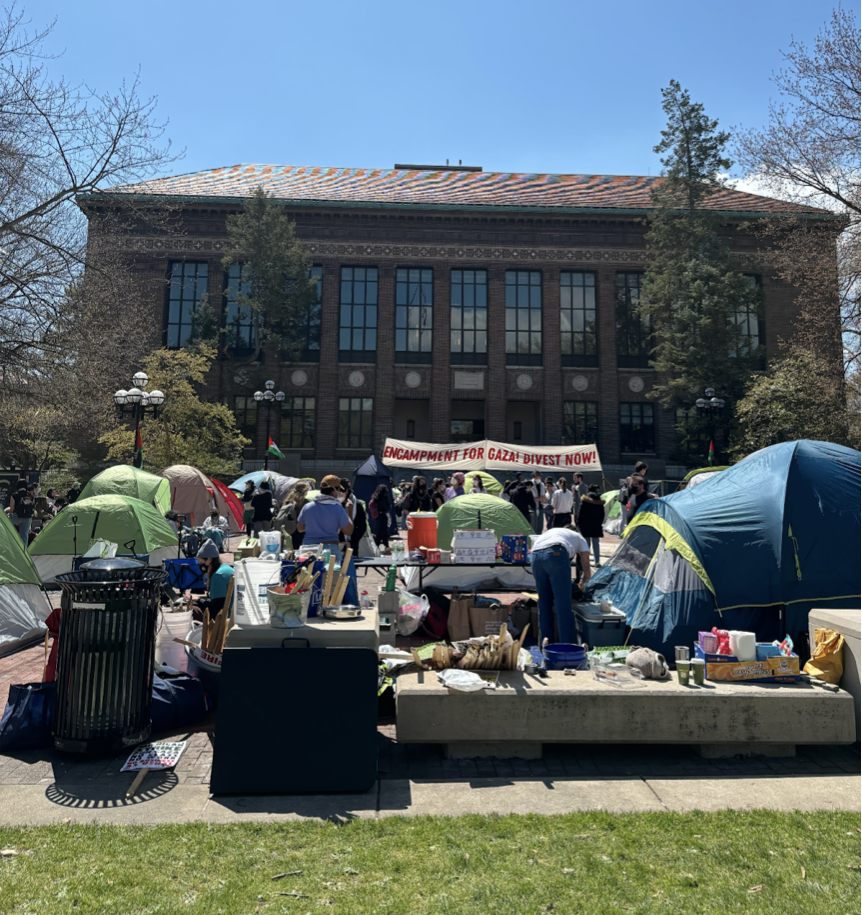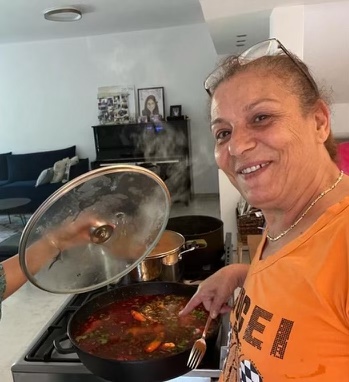
The indescribably brutal Hamas terrorist attacks of Oct. 7 have been the worst in the history of Medinat Yisrael, the nation of Israel, which has not been in a more existential crisis since its 1948 War of Independence.
However, war has always been a part of the history of B’nei Yisrael – the Jewish people.
While Avraham fought wars, it is also helpful to look to Yaakov and the war that didn’t happen. In parshat Vayishlach, Yaakov narrowly avoided a battle with Esav, his own brother!
During a drasha last Shabbat at the shul Knesset Israel, Rabbi Jason Weiner noted a peculiarity in Parshat Vayishlach, In B’reishit (Genesis) 32:8, the Torah says that Yaakov, after hearing the news about Esav, was very frightened and it disturbed him. Why would the Torah say that Yaakov was frightened and also that it disturbed him? Wouldn’t just the first part of the pasuk be enough? What disturbed Yaakov that didn’t frighten him?
Rashi states that Yaakov was fearful for his life, and also disturbed that he might have to kill his own brother in a conflict.
Rabbi Weiner also quoted the Gur Aryeh – Rabbi Judah Loew ben Bezalel, a 16th-century Czech Talmudic scholar – who said that Yaakov was also scared he would end up in a battle in which innocent members of Esav’s 400-member group traveling with him would be trapped in the conflict and killed.
In his talk, Rabbi Weiner related this concern of Yaakov to the Israeli Defense Forces’ meticulous planning and careful operations to ensure the protection of civilian life like no other army. Even moreso, he said, the Israeli Army does not kill out of vengeance: operations are designed strictly in order to neutralize enemy targets and to never (God forbid) intentionally harm civilians.
This idea of protecting innocent civilians in times of war is of utmost importance to Jews today. But how should this value guide our actions?
In particular, there are two distinct halachic (legal) categories of war laid out by the Mishna (Sotah 8:7) a milchemet reshut, a permitted but voluntary war, and a milchemet mitzvah, a commanded or holy war, which we actually required to wage. Examples of a milchemet mitzvah would be conquering the land of Israel in wars against the seven tribes of Canaan and protecting people from an invading enemy.
The difference with a milchemet reshut – a war that is permitted but not required – is that certain people, like recently married men or men who just bought a house or had been working on a vineyard for year, who would be required to fight in a milchemet mitzvah would be exempt from fighting in a milchemet reshut.
In either kind of war, halakha makes certain basic requirements for a Jewish army while fighting, the principles of which come from Sefer Devarim (Deuteronomy) but are later elaborated upon by Rambam. Among them are that they are not to destroy fruit trees, or to cut off the water supply – something that happened for a week in October after Israel stopped sending water into Gaza, something which it had been doing for years.
However, halacha does not specify how these principles apply to fighting in different types of situations. In this instance, Israel did not stop supplying Gaza with water in order to defeat Hamas, only to ensure the safe return of over 240 hostages Hamas had abducted. If the hostages had all been returned, Israel would have re-supplied Gaza with water immediately.
Also, when a Jewish army surrounds a city for a siege, it must keep one side open for any civilians who wish to flee. And before the war itself, they must attempt to reach a peace agreement first.
But how should we treat the enemies themselves? They do not deserve any sympathy, but how do we treat our victories? Are we to celebrate them?
At first glance, the Torah seems to endorse rejoicing over the death of our enemies: after all, our ancestors danced at the Egyptians’ watery grave. In Shirat Hayam — the Song at the Sea — were they not glorifying the death of our foes, and is this any different from what should be our ideal conduct today?
Perhaps the story of B’nei Yisrael on the banks of the Red Sea is neither a glorification of our enemies’ death and nor applicable to today’s wars in Israel. While this does not seem intuitive at first, when we contextualize and understand the purpose of Shirat Hayam, the intentions become clear.
Crossing the sea is the turning point for Bnei Yisrael: on one side of the sea, they are an enslaved group of people; on the other they are a full nation. And this was only possible, of course, with the help of Hashem, who delivered them across the sea and prevented them from being killed by Pharaoh’s army.
The nature of the song thus is one of thanks to Hashem and a recognition of His strength. In fact, Chazal (the sages) say in a Midrash from Megillah 10b that the angels wanted to sing when they saw Bnei Yisrael singing, but Hashem stopped them, saying, “How can you sing when my creations are being destroyed!”
Clearly, Shirat Hayam is in fact not glorifying the death of Egyptians, and in fact doing such would not be acceptable, according to Chazal.
What about what’s going on now? When it comes to Hamas, a group just as bad as the Egyptians of Sefer Shemot or the Amalekites, shouldn’t we be able to glorify their deaths? No! Even when dealing with Hamas, in the ranks of which are the most evil people on this planet, we cannot celebrate defeating them. But why not?
Any war, either a milchemet reshut or milchemet mitzvah, since the acquisition of Eretz Yisrael, is a tragedy that should not happen. Thus, either it must happen or it shouldn’t happen at all. The war in Israel right now needs to happen in order to ensure the safety of everyone in Israel.
But the fact that we need to fight is terrible: IDF soldiers have to risk their lives fighting terrorists for the State of Israel to exist. Perhaps the proper analogy is to the case in the Gemara (Sanhedrin 73a) about Esav referenced by the Gur Aryeh.
Nobody cheers when they have to kill someone in self-defense, so why should we cheer when we have to kill terrorists? We should not.
On the other hand, this should not be taken to mean that we cannot celebrate military victories, it just means that we should not celebrate the deaths of those we had to kill to ensure victory. If Israel was able to completely neutralize Hamas tomorrow, of course that would be something to be happy about! But to rejoice over the killing of even Hamas – arguably the most vile human beings on earth, people who undeniably deserve to die and should be hunted down – to take pleasure in their deaths is not at all proper, even though their deaths are a positive good.
That’s because to glorify death itself, even of Hamas terrorists, is not acceptable. Exalting death is the practice of our enemies: of Amalek, who attacked indiscriminately; of Egypt, who pursued us, and of Hamas, who once again attacked us indiscriminately. They brutally killed any Jew they could find and cheered their murder. We must never forget their attacks.
Instead of praising death like our enemies, we should be thankful for our own lives, which we owe to Hashem and the IDF soldiers protecting us. We cannot be like our bloodthirsty enemies. Instead of turning to blood and violence, we need to turn to mitzvot and Hashem.
Only with His help can we win wars and even be alive today.
This idea of protecting innocent civilians in times of war is of utmost importance to Jews today. But how should this value guide our actions?
In particular, there are two distinct halachic (legal) categories of war laid out by the Mishna (Sotah 8:7) a milchemet reshut, a permitted but voluntary war, and a milchemet mitzvah, a commanded or holy war, which we actually required to wage. Examples of a milchemet mitzvah would be conquering the land of Israel in wars against the seven tribes of Canaan and protecting people from an invading enemy.
The difference with a milchemet reshut – a war that is permitted but not required – is that certain people, like recently married men or men who just bought a house or had been working on a vineyard for year, who would have to fight in a milchemet mitzvah would be exempt from fighting in a milchemet reshut.
In either kind of war, halakha makes certain basic requirements for a Jewish army while fighting, the principles of which come from Devarim but are later elaborated upon by Rambam. They are not to destroy fruit trees or cut off the water supply – something that happened for a week in October after Israel stopped sending water into Gaza, something they had been doing for years.
Also, when a Jewish army surrounds a city for a siege, it must keep one side open for any civilians who wish to flee. And before the war itself, they must attempt to reach a peace agreement first.
But how should we treat the enemies themselves? They do not deserve any sympathy, but how do we treat our victories? Are we to celebrate them?
At first glance, the Torah seems to endorse rejoicing over the death of our enemies: after all, our ancestors danced at the Egyptians’ watery grave. In Shirat Hayam — the Song at the Sea — were they not glorifying the death of our foes, and is this any different from what should be our ideal conduct today?
Perhaps the story of Bnei Yisrael on the banks of the Red Sea is neither a glorification of our enemies’ death and nor applicable to today’s wars in Israel. While this does not seem intuitive at first, when we contextualize and understand the purpose of Shirat Hayam, the intentions become clear.
Crossing the sea is the turning point for Bnei Yisrael: on one side of the sea, they are an enslaved group of people; on the other they are a full nation. And this was only possible, of course, with the help of Hashem, who delivered them across the sea and prevented them from being killed by Pharaoh’s army.
The nature of the song thus is one of thanks to Hashem and a recognition of His strength. In fact, Chazal (the sages) say in a Midrash from Megillah 10b that the angels wanted to sing when they saw Bnei Yisrael singing, but Hashem stopped them, saying, “How can you sing when my creations are being destroyed!”
Clearly, Shirat Hayam is in fact not glorifying the death of Egyptians, and in fact doing such would not be acceptable, according to Chazal.
What about what’s going on now? When it comes to
Hamas, a group just as bad as the Egyptians of Sefer Shemot and the Amalekites, shouldn’t we be able to glorify their deaths? No! Even when dealing with Hamas, in the ranks of which are the most evil people on this planet, we cannot celebrate defeating them. But why not?
Any war, either a milchemet reshut or milchemet mitzvah, since the acquisition of Eretz Yisrael, is a tragedy that should not happen. Thus, either it must happen or it shouldn’t happen at all. The war in Israel right now needs to happen in order to ensure the safety of everyone in Israel.
But the fact that we need to fight is terrible: IDF soldiers have to risk their lives fighting terrorists for the State of Israel to exist. Perhaps the proper analogy is to the case in the Gemara (Sanhedrin 73a) referenced by the Gur Aryeh.
Nobody cheers when they have to kill someone in self-defense, so why should we cheer when we have to kill terrorists?
On the other hand, this should not be taken to mean that we cannot celebrate military victories, it just means that we should not celebrate the deaths of those we had to kill to ensure victory. If Israel was able to completely neutralize Hamas tomorrow, of course that would be something to be happy about! But to rejoice over the killing of even Hamas – arguably the most vile human beings on earth, people who undeniably deserve to die and should be hunted down – to take pleasure in their deaths is not at all proper, even though their deaths are a positive good.
That’s because to glorify death itself, even of Hamas terrorists, is not acceptable. Exalting death is the practice of our enemies: of Amalek, who attacked indiscriminately; of Egypt, who pursued us, and of Hamas, who once again attacked us indiscriminately. They brutally killed any Jew they could find and cheered their murder. We must never forget their attacks.
Instead of praising death like our enemies, we should be thankful for our own lives, which we owe to Hashem and the IDF soldiers protecting us. We cannot be like our bloodthirsty enemies. Instead of turning to blood and violence, we need to turn to mitzvot and Hashem.
Only with His help can we win wars and even be alive today.

